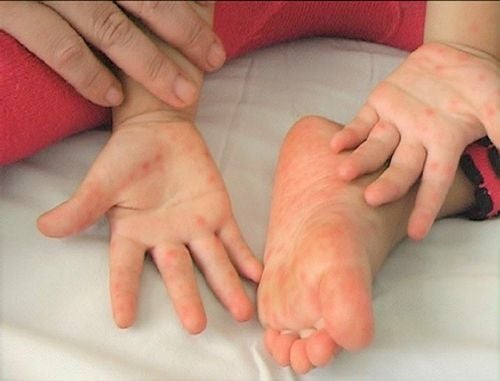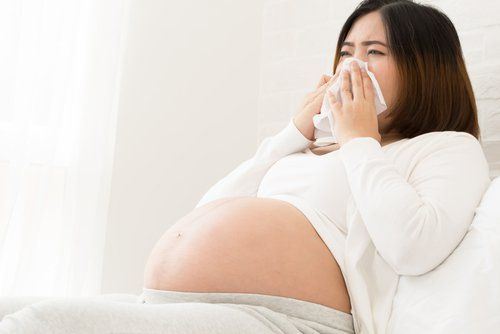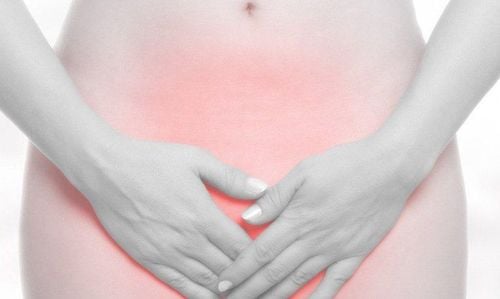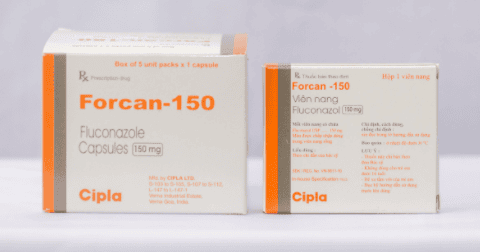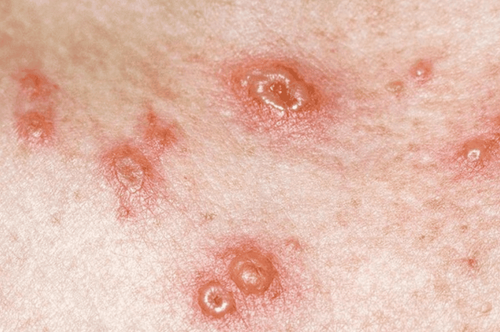The article is professionally consulted by physicians from the Pediatrics - Neonatology Department, Vinmec International General Hospital, Hai Phong.
Mumps can lead to various serious complications, including infertility. The disease can occur at any age, particularly in children. Therefore, it is pertinent to understand why mumps can easily cause infertility. This article aims to elucidate the risks associated with the disease and to provide preventive measures.
1. Symptoms of Mumps
Mumps is an acute infectious disease caused by the Paramyxovirus. It can spread directly from person to person via respiratory droplets and through contact between an infected individual and a healthy person.
The onset of mumps may begin with mild symptoms such as low-grade fever, loss of appetite, and myalgia. These non-specific symptoms may lead individuals to take them lightly and confuse them with common colds or flu-like illness. Consequently, isolation from infected individuals may not be prioritized, leading to rapid transmission.
After approximately two days of experiencing these symptoms, the patient begins to experience additional symptoms such as swelling and pain in the parotid gland, which may affect one or both sides. This symptom is often the most characteristic of mumps.
Additionally, the patient may also experience sore throat, jaw pain, along with symptoms of headaches, fever, nausea, and generalized malaise
2. Why Mumps Can Easily Cause Infertility
Mumps can result in several dangerous complications, including infertility, pulmonary embolism, encephalitis, and meningitis. Therefore, it is essential to elucidate why mumps can lead to infertility.
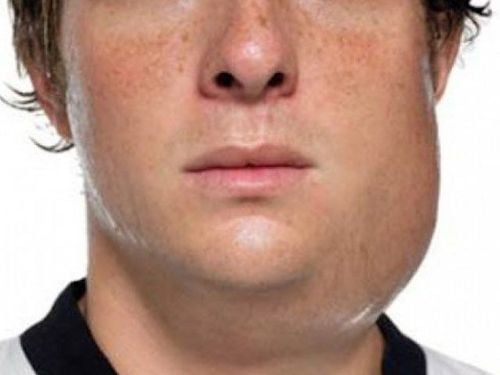
Mumps-related complications can result in infertility, specifically through conditions such as orchitis and oophoritis. Mumps can cause inflammation of the testes and epididymis, which can directly impact the reproductive capabilities of the affected individual. In cases of orchitis due to mumps, the testes may become enlarged, painful, and inflamed, potentially leading to prolonged fever.
In severe cases, this can result in testicular atrophy and a significant decrease in sperm count, leading to infertility. For females, mumps can induce oophoritis, characterized by lower abdominal pain and abnormal menstrual bleeding. In pregnant women infected with mumps, there is an increased risk of miscarriage, preterm labor, or stillbirth during the first trimester of pregnancy.
The incidence of orchitis occurring after puberty ranges from 20% to 35% among individuals with mumps. Symptoms of orchitis and epididymitis typically manifest 7 to 10 days following parotitis.
Currently, the serious complications associated with mumps include not only orchitis and oophoritis but also the potentially perilous condition of meningitis. These complications cause concern among affected individuals and the public. Individuals who have previously experienced orchitis or have had mumps are at risk of being affected in their reproductive health; however, confirming this requires further testing as many variables need consideration.
Complications such as orchitis, epididymitis, or oophoritis can affect reproductive capacity. Nevertheless, not every individual infected with mumps will experience infertility; it largely depends on the presence of complications.
Furthermore, the risk of infertility is substantially higher only when both testes or ovaries are affected. Therefore, affected individuals should remain calm, adhere to preventive guidelines to avert mumps, and focus on treatment and isolation if they become infected.

3. Methods of Prevention and Treatment for Mumps
Upon contracting mumps, the first step is to isolate the patient and promptly refer them to a healthcare facility for evaluation. Additionally, to effectively prevent the spread of the disease, it is crucial to limit contact with the infected individual and refrain from sharing food or personal items.
In the presence of a person suspected of having mumps, immediate isolation and rest at home are essential. Subsequently, the patient should be swiftly taken to a medical institution for examination. It is important to ensure the patient stays well-hydrated. Meals should consist of soft, liquid, and easily swallowable foods, while minimizing extensive chewing during the illness.
During a mumps infection, it is necessary to shield the patient from cold air and water to prevent exacerbation of swelling in the salivary glands. Furthermore, maintaining proper oral hygiene is important.
Vaccination is a safe method for preventing the transmission of mumps. Notably, women of childbearing age are advised to receive mumps vaccination prior to pregnancy to mitigate the risk of vertical transmission from mother to child. Currently, Vinmec provides mumps vaccines and other vaccines for infectious diseases such as measles, ensuring the health of individuals before and after vaccination.
Vinmec International General Hospital has implemented the MMR II vaccine service from Merck Sharp and Dohme, produced in the United States. The advantages of receiving vaccinations at Vinmec include:
- 100% of vaccinated children are monitored for 30 minutes post-vaccination and are assessed for health before discharge.
- Children are thoroughly examined and screened for all health issues, and are provided counseling regarding vaccination and immunization schedules, along with instructions for monitoring and caring for children post-vaccination, following the latest recommendations from the Ministry of Health and the World Health Organization to ensure optimal efficacy and safety.
- The team of pediatricians and nurses is professional and experienced, with an understanding of children's psychology, employing effective pain management techniques during the vaccination process.
- Multidisciplinary monitoring is conducted before, during, and after vaccination. The Vinmec health system is always prepared with an emergency team ready to collaborate with the vaccination unit to manage cases of anaphylaxis or respiratory failure, ensuring timely and appropriate management of any adverse events.
- The vaccination room is well-ventilated and equipped with a play area, helping children feel comfortable, akin to playing, thus promoting positive mental states before and after vaccination.
- Vaccines are imported and stored in a modern cold storage system, with a cold chain process compliant with GSP standards, ensuring optimal conditions for maintaining vaccine quality.
- Clients will receive reminder messages prior to the vaccination date, and vaccination information will be synced with the national immunization information system.
Please dial HOTLINE for more information or register for an appointment HERE. Download MyVinmec app to make appointments faster and to manage your bookings easily.
To arrange an appointment, please call HOTLINE or make your reservation directly HERE. You may also download the MyVinmec app to schedule appointments faster and manage your reservations more conveniently.
